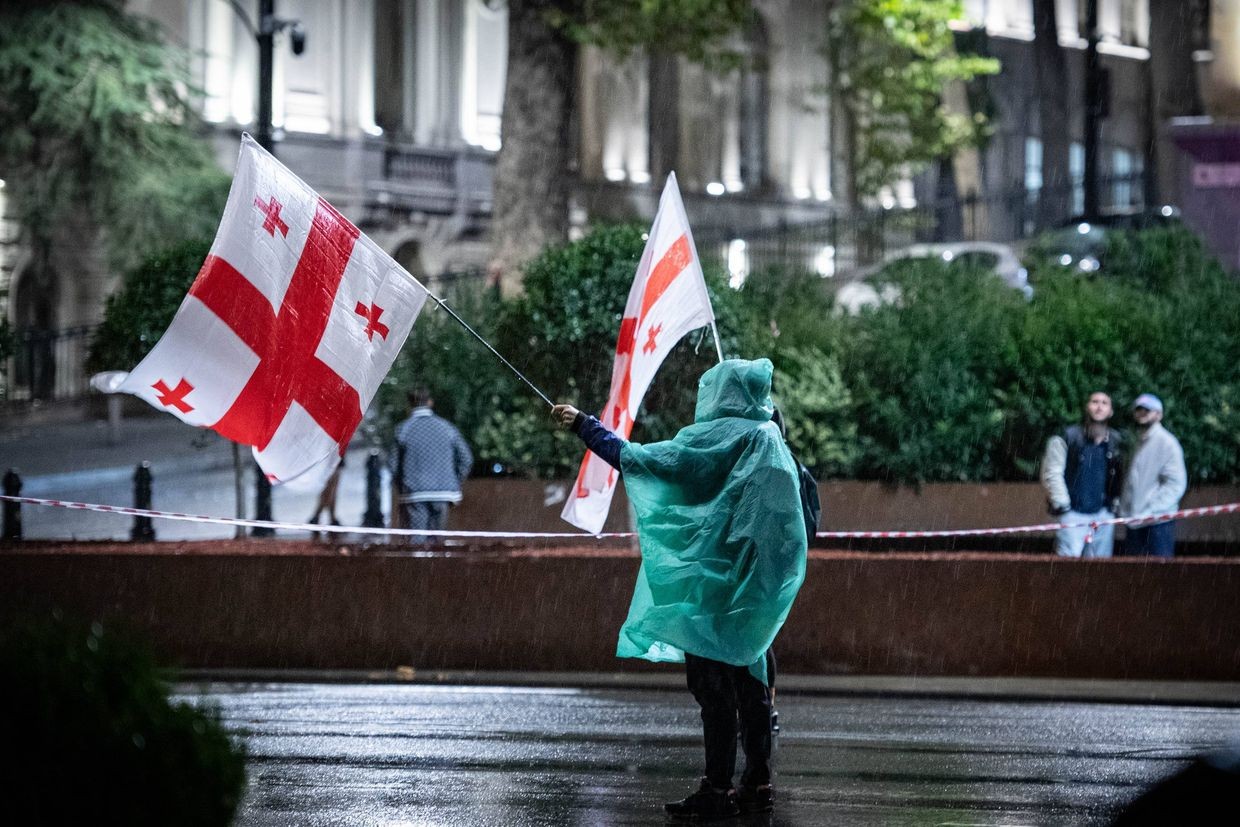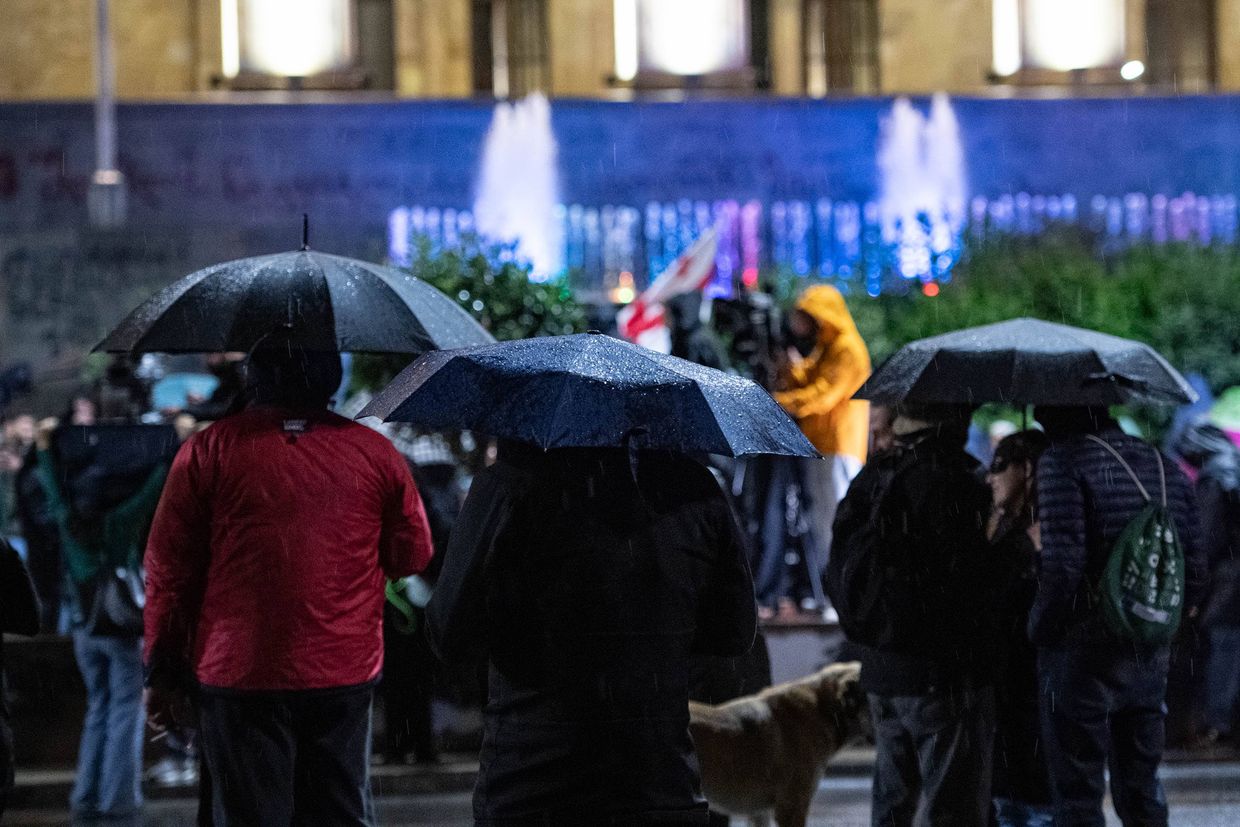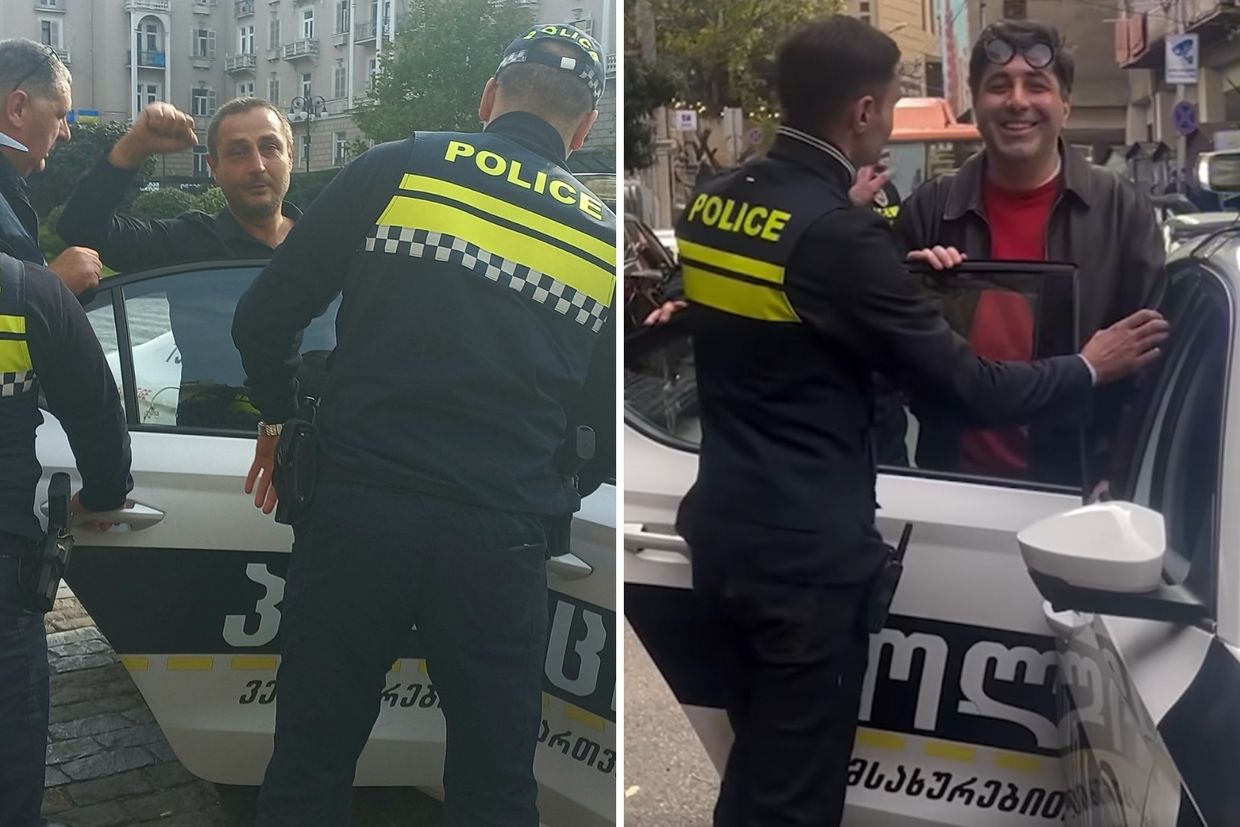
Arrests continue in Tbilisi under the recently adopted legislative amendments further restricting protests. Tbilisi City Court handed at least five more demonstrators days-long sentences on Monday, while police have been stopping people near the epicentre of the rallies for ‘identification’ purposes.
The parliament, controlled by the ruling Georgian Dream party and its satellites, rushed through the amendments last Thursday, replacing administrative fines with direct imprisonments for several protest-related actions.
Protesters have been blocking the road in front of parliament in central Tbilisi daily since 28 November 2024, when the government announced it was ‘postponing’ the country’s EU application.
After President Mikheil Kavelashvili signed the amendments into law on the same day they were passed, the Interior Ministry began urging the public to clear the roads.
Some of those detained on Monday under the new legislation were accused of blocking the road, while others were charged with covering their faces during the protest.
They were sentenced by the court the same day: one received a four-day prison sentence, another five days, and the remaining three were each sentenced to six days.

This is a continuation of the wave of arrests that began on Sunday, the third day after the restrictive amendments were adopted. At that time, almost a dozen people were detained; some have already been sentenced to detention, others were released with a verbal warning, and some cases have been postponed.
Among those detained were two journalists from the opposition-leaning media outlet TV Formula, Vakho Sanaia and Keta Tsitskishvili. Sanaia was sentenced to six days on Sunday, while Tsitskishvili received a five-day sentence on Monday — neither appear to have been working at the time. Even so, Formula described the detentions as ‘an attack on independent media aimed at suppressing critical voices’.
Typically, police do not detain demonstrators on the spot. Instead, they are identified, and arrests are carried out the following day — either at their homes or while the targeted individuals are out in public.
In the past few days, there have been multiple instances of police stopping people near the protest site for ‘identification’ purposes. Local media has reported cases in which officers seized items, including medical masks — apparently treating them as evidence of face covering — and filed a report.
One such individual, Lara Nachkebia, who was stopped by police on Saturday and reportedly accused of covering her face with a scarf, was detained for four days on Sunday.
‘If [restrictions] become law, the regime gains legitimacy’
In protest of the restrictive legislation and recent arrests, protest participant and filmmaker Giorgi Tavartkiladze went to the police station himself and reported that he had blocked the road.
‘[My action] has a motive: I believe that if we want to survive and call all of this a struggle, it must take the form of resistance. Today, resistance exists only on the roadway’, he told Formula.
‘Georgian Dream is imposing restrictions it calls laws, and it will become law if we obey it. And if it becomes law, the regime will gain legitimacy’, he added.
Despite his pleas, Tavartkiladze was not detained.
On Monday, the prominent human rights organisation Amnesty International commented on the legislative changes and subsequent arrests, noting that they ‘underscore an ever-deepening pattern of repression in Georgia’.
‘While states may impose certain restrictions on protests to maintain public order, the new amendments go far beyond what is permissible under international human rights law’, Denis Krivosheev, the organisation’s Deputy Director for Eastern Europe and Central Asia, said.
The new legislation provides for much harsher penalties in cases of repeat offences. While a first offence of blocking roads or covering one’s face can result in up to 15 days of detention, a repeat offence within the following year can lead to imprisonment of up to one year, with subsequent repeat offences punishable by up to two years.
The Georgian Dream government has previously attempted to suppress daily protests, using brutal police violence at the start of demonstrations and hefty fines afterwards for road blocking — fines that increased tenfold last winter and now amount to ₾5,000 ($1,800).
Despite these measures, the protests have not stopped.











